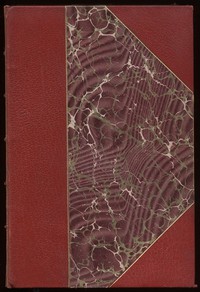Guy Mannering; or, The Astrologer — Complete by Walter Scott (good books to read in english .TXT) 📗

- Author: Walter Scott
Book online «Guy Mannering; or, The Astrologer — Complete by Walter Scott (good books to read in english .TXT) 📗». Author Walter Scott
‘And now, why will you still upbraid me with my melancholy, Mervyn? Do you think, after the lapse of twenty-five years, battles, wounds, imprisonment, misfortunes of every description, I can be still the same lively, unbroken Guy Mannering who climbed Skiddaw with you, or shot grouse upon Crossfell? That you, who have remained in the bosom of domestic happiness, experience little change, that your step is as light and your fancy as full of sunshine, is a blessed effect of health and temperament, cooperating with content and a smooth current down the course of life. But MY career has been one of difficulties and doubts and errors. From my infancy I have been the sport of accident, and, though the wind has often borne me into harbour, it has seldom been into that which the pilot destined. Let me recall to you--but the task must be brief--the odd and wayward fates of my youth, and the misfortunes of my manhood.
‘The former, you will say, had nothing very appalling. All was not for the best; but all was tolerable. My father, the eldest son of an ancient but reduced family, left me with little, save the name of the head of the house, to the protection of his more fortunate brothers. They were so fond of me that they almost quarrelled about me. My uncle, the bishop, would have had me in orders, and offered me a living; my uncle, the merchant, would have put me into a counting-house, and proposed to give me a share in the thriving concern of Mannering and Marshall, in Lombard Street. So, between these two stools, or rather these two soft, easy, well-stuffed chairs of divinity and commerce, my unfortunate person slipped down, and pitched upon a dragoon saddle. Again, the bishop wished me to marry the niece and heiress of the Dean of Lincoln; and my uncle, the alderman, proposed to me the only daughter of old Sloethorn, the great wine-merchant, rich enough to play at span-counter with moidores and make thread-papers of bank-notes; and somehow I slipped my neck out of both nooses, and married--poor, poor Sophia Wellwood.
‘You will say, my military career in India, when I followed my regiment there, should have given me some satisfaction; and so it assuredly has. You will remind me also, that if I disappointed the hopes of my guardians, I did not incur their displeasure; that the bishop, at his death, bequeathed me his blessing, his manuscript sermons, and a curious portfolio containing the heads of eminent divines of the church of England; and that my uncle, Sir Paul Mannering, left me sole heir and executor to his large fortune. Yet this availeth me nothing; I told you I had that upon my mind which I should carry to my grave with me, a perpetual aloes in the draught of existence. I will tell you the cause more in detail than I had the heart to do while under your hospitable roof. You will often hear it mentioned, and perhaps with different and unfounded circumstances. I will therefore speak it out; and then let the event itself, and the sentiments of melancholy with which it has impressed me, never again be subject of discussion between us.
‘Sophia, as you well know, followed me to India. She was as innocent as gay; but, unfortunately for us both, as gay as innocent. My own manners were partly formed by studies I had forsaken, and habits of seclusion not quite consistent with my situation as commandant of a regiment in a country where universal hospitality is offered and expected by every settler claiming the rank of a gentleman. In a moment of peculiar pressure (you know how hard we were sometimes run to obtain white faces to countenance our line-of-battle), a young man named Brown joined our regiment as a volunteer, and, finding the military duty more to his fancy than commerce, in which he had been engaged, remained with us as a cadet. Let me do my unhappy victim justice: he behaved with such gallantry on every occasion that offered that the first vacant commission was considered as his due. I was absent for some weeks upon a distant expedition; when I returned I found this young fellow established quite as the friend of the house, and habitual attendant of my wife and daughter. It was an arrangement which displeased me in many particulars, though no objection could be made to his manners or character. Yet I might have been reconciled to his familiarity in my family, but for the suggestions of another. If you read over--what I never dare open--the play of “Othello,” you will have some idea of what followed--I mean of my motives; my actions, thank God! were less reprehensible. There was another cadet ambitious of the vacant situation. He called my attention to what he led me to term coquetry between my wife and this young man. Sophia was virtuous, but proud of her virtue; and, irritated by my jealousy, she was so imprudent as to press and encourage an intimacy which she saw I disapproved and regarded with suspicion. Between Brown and me there existed a sort of internal dislike. He made an effort or two to overcome my prejudice; but, prepossessed as I was, I placed them to a wrong motive. Feeling himself repulsed, and with scorn, he desisted; and as he was without family and friends, he was naturally more watchful of the deportment of one who had both.
‘It is odd with what torture I write this letter. I feel inclined, nevertheless, to protract the operation, just as if my doing so could put off the catastrophe which has so long embittered my life. But--it must be told, and it shall be told briefly.
‘My wife, though no longer young, was still eminently handsome, and--let me say thus far in my own justification-she was fond of being thought so--I am repeating what I said before. In a word, of her virtue I never entertained a doubt; but, pushed by the artful suggestions of Archer, I thought she cared little for my peace of mind, and that the young fellow Brown paid his attentions in my despite, and in defiance of me. He perhaps considered me, on his part, as an oppressive aristocratic man, who made my rank in society and in the army the means of galling those whom circumstances placed beneath me. And if he discovered my silly jealousy, he probably considered the fretting me in that sore point of my character as one means of avenging the petty indignities to which I had it in my power to subject him. Yet an acute friend of mine gave a more harmless, or at least a less offensive, construction to his attentions, which he conceived to be meant for my daughter Julia, though immediately addressed to propitiate the influence of her mother. This could have been no very flattering or pleasing enterprise on the part of an obscure and nameless young man; but I should not have been offended at this folly as I was at the higher degree of presumption I suspected. Offended, however, I was, and in a mortal degree.
‘A very slight spark will kindle a flame where everything lies open to catch it. I have absolutely forgot the proximate cause of quarrel, but it was some trifle which occurred at the card-table which occasioned high words and a challenge. We met in the morning beyond the walls and esplanade of the fortress which I then commanded, on the frontiers of the settlement. This was arranged for Brown’s safety, had he escaped. I almost wish he had, though at my own expense; but he fell by the first fire. We strove to assist him; but some of these looties, a species of native banditti who were always on the watch for prey, poured in upon us. Archer and I gained our horses with difficulty, and cut our way through them after a hard conflict, in the course of which he received some desperate wounds. To complete the misfortunes of this miserable day, my wife, who suspected the design with which I left the fortress, had ordered her palanquin to follow me, and was alarmed and almost made prisoner by





Comments (0)